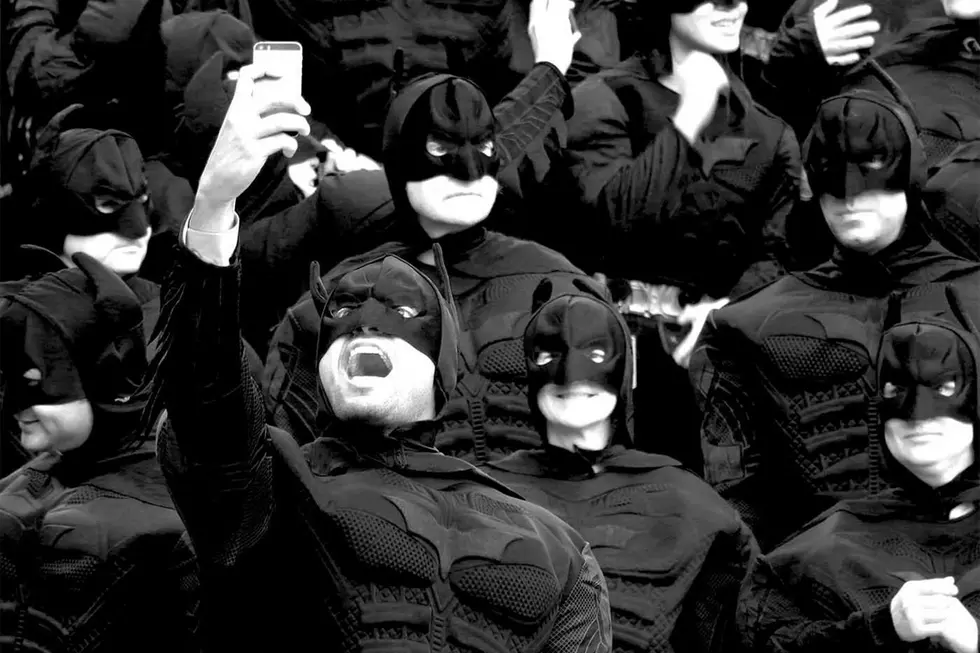
Sixty-Five Years Ago Today: Celebrating the Good Grief of ‘Peanuts’
On October 2nd, 1950, Charles Schulz's Peanuts debuted in nine newspapers for United Features Syndicate. Fifty years later, it concluded with just shy of eighteen thousand strips published in thousands of papers, with the final installment appearing one day after Schulz passed away.
Between those two loci, Peanuts begat a billion-dollar media empire, the modern American comic strip, and a legacy of progressiveness, honesty, and inclusion that endures today. If Peanuts isn't definitively the greatest comic strip of all time, it's probably the most influential, and certainly the most successful, forever altering the dominant styles and subject matter of the funny pages.
Because of Peanuts, the predominant format for daily American strips is a four-panel horizontal crawl; the typical style all about clean lines, simple characters, and minimal backgrounds. Since at least 1980, most of the comics worth reading involve some combination of anthropomorphized animals, big-headed kids speaking with an awareness beyond their years, and examinations of the common inhumanities of everyday life.
Prior to Peanuts, kids in cartoons were treated like, well, children. In strips like Nancy and Little Lulu, everything was light and breezy. Schulz, remembering the difficulties of his own childhood, treated them with absolute seriousness; it was adults he handled like children.
Charlie Brown is a character for whom simple joys seem permanently out-of-reach, yanked away like a football by that mean little kid that everybody remembers. He never got away with anything, never won, and was just barely making it through the emotional minefield of youth, yet he continued to strive for happiness. Failure, defeat, and insignificance plagued him at every turn, with hypocrisy, commercialism, bureaucracy, and cruelty not far behind.
Through Charlie Brown and the rest of the Peanuts gang (a name Schulz hated, by the way), Schulz issued challenges to American culture to see its own hypocrisy, artifice, and lack of empathy. It wasn't just an honest trip through the emotional minefield of youth; by imbuing his characters with the attributes of adults, Schulz criticized the behavior of adults with subtlety, humor, and charm that quickly made the series a success. Check that; a phenomenon.
Peanuts became a worldwide sensation, published in thousands of papers reaching millions of readers. Snoopy and Charlie Brown appeared in commercials and Hallmark greeting cards; Schulz's creation was even the subject of a Time magazine cover story in 1965.
That same year, interest in an animated special led to the creation of two more undisputed American classics: the Peabody award-winning A Charlie Brown Christmas and the accompanying soundtrack by the Vince Guaraldi Trio. More animation specials, original movies, amazing music, and marketing opportunities followed, with Peanuts becoming a ubiquitous presence in American culture.
At its best, Peanuts mixed biting commentary and gentle humor; difficult emotions and child-like whimsy; terribly sad truths and gloriously uplifting joys.
A religious man who managed to impart his morals without evangelizing, Schulz explored the complexity of belief with an open heart, and addressed social issues with equanimity and nuance. Even into the 80s and 90s, there remained a magical quality to Peanuts that kept it firmly cemented as the most popular comic strip in the world.
Reprints are still published in newspapers today; the holiday specials air every year; "Linus & Lucy" still brings tears of joy to anybody with two ears and a heart; and on November 6, 2015, The Peanuts Movie will likely find an entire new generation of lifelong fans.
There will always be people for whom nothing ever seems easy, for whom failure and defeat seem inescapable; kids who will hear the words, "I just don't feel the way I'm supposed to feel" and know exactly what Charlie Brown and Charles M. Schulz were talking about.
Anxiety, depression, and feeling out-of-place are timeless emotions; heartless commercialism and exclusion are timeless phenomena. There's no reason to believe that Peanuts won't be timeless as well.
More From ComicsAlliance




![The Case For Bisexual Peppermint Patty [Pride Week]](http://townsquare.media/site/622/files/2016/06/PrideWeek-Peppermint.jpg?w=980&q=75)
![New ‘Peanuts’ Cartoon Brings The Comic Strip To Life [Review]](http://townsquare.media/site/622/files/2016/05/peanuts-feat.jpg?w=980&q=75)



